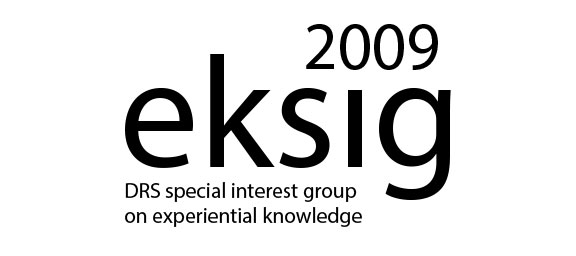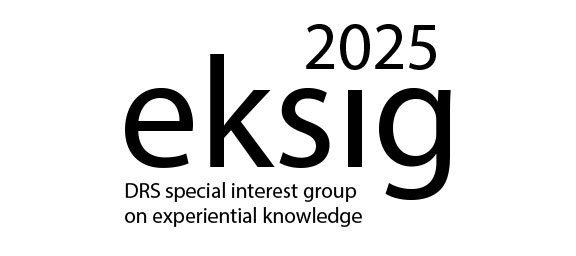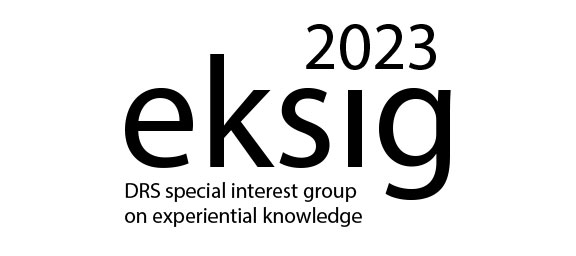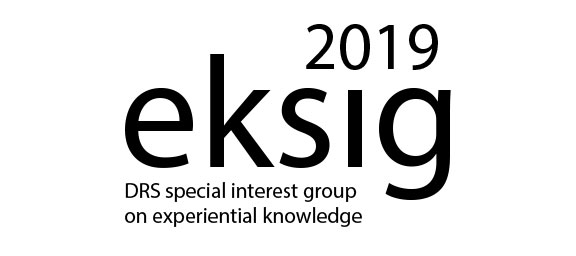EKSIG 2009 Experiential knowledge, method & methodology
International Conference of the DRS Special Interest Group on Experiential Knowledge at London Metropolitan University, 2009
Date: Friday, 19 June 2009
Venue: London Metropolitan University, London, UK
EKSIG 2009 addresses the theme of 'Experiential Knowledge, Method and Methodology'.
- John Onians, University of East Anglia, UK
- Angie Titchen, Fontys University of Applied Science, The Netherlands
This theme aims to provide a forum for debate about methodology and methods for the inclusion and communication of knowledge in research and practice in the creative disciplines.
The need to be more explicit about research methods, frameworks, and methodologies has arisen from the increasing use of creative and professional practices as part of the practice of research in recent years. While research guidelines and regulations have been either generic enough, or were adjusted, to accommodate the use of some creative and professional practices under certain conditions, the debate about the nature, aims, validity, evaluation, and necessity of such research has continued.
While all research has a method, and disciplines are characteristically driven by debates about the best methods for achieving their aims, that which constitutes a research method in design and related disciplines is still a matter of debate. The debates about research methods in design in many ways echo questions addressed in the design methods movement of the 1960s and 1970s, such as: 'What are design methods?' Now framed in terms of design research, questions address the conditions under which design methods might be used as research methods as well as the nature of discipline specific methodologies.
The developing understanding in this debate is that the inclusion of practice in the research process or as a research outcome helps to integrate and/or communicate those kinds or parts of knowledge that cannot easily be made explicit, such as the tacit part of experiential and procedural knowledge, commonly known as tacit knowledge. With this conference, we wish to explore the different ways in which tacit knowledge can be integrated and communicated within the framework of research.
Questions of interest are for example:- What are design methods and what are design research methods?
- How is knowledge/knowing created within the process of research?
- What frameworks are there to guide discipline specific methodologies?
- How can we integrate and utilise tacit knowledge in the process of research?
- Why is the use of tacit knowledge important in research?
- What contribution can the use of practice make to the inclusion of tacit knowledge in research?
- What contribution can the use of design practice make to the development of design research?
- What methods are there for the communication of tacit knowledge within research?
- Can we talk about the communication of tacit knowledge, or should we talk about a transfer?
- What means and methods do we have to transfer tacit knowledge?
Conference Organizers
Linden Reilly, London Metropolitan University, UK
Kristina Niedderer, University of Wolverhampton, UK
Chris Smith, London Metropolitan University, UK
Seymour Roworth-Stokes, University College for the Creative Arts, UK



